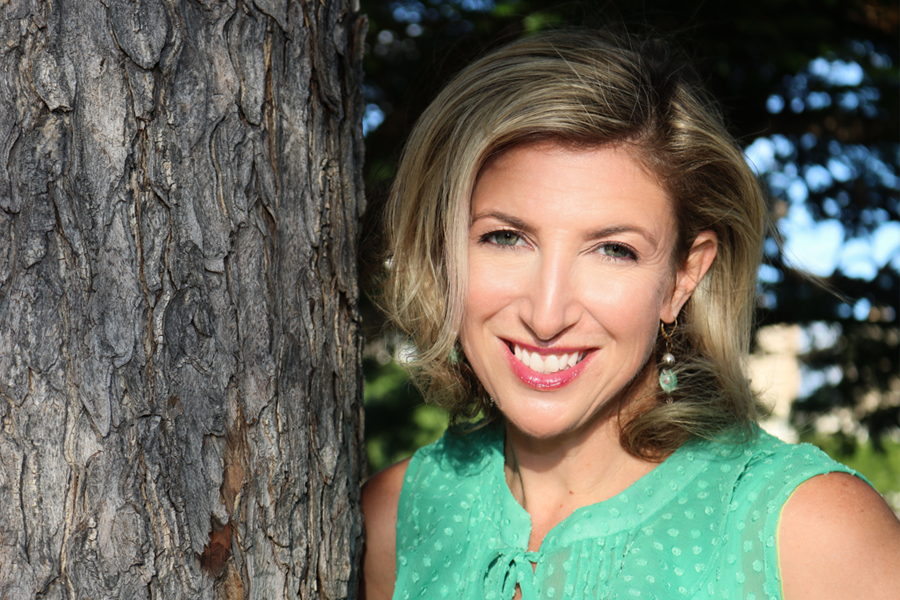
Tru-ly Inspiring
Alumna Terry Babcock-Lumish’s dream job at The Truman Foundation has brought her full circle to lead a community that changed her life
By Amanda S.F. Hartle
The National Mall runs nearly two miles through the heart of Washington, D.C. with countless monuments, marble statues and plaques, but even the most steadfast searcher won’t find one memorializing President Harry S. Truman.
Instead, The Harry S. Truman Scholarship Foundation exists as a living memorial to the 33rd president. It supports the next generation of public service leaders in part by awarding Truman Scholars with the nation’s premier public service scholarship.
The ranks of Truman Scholars include Carnegie Mellon University alumna and The Truman Foundation’s newest executive secretary Terry Babcock-Lumish (DC 1997) as well as Supreme Court Associate Justice Neil Gorsuch, former Georgia gubernatorial candidate Stacey Abrams and political analyst George Stephanopoulos.
“I feel intensely honored that I’ve been trusted to lead The Truman Foundation’s next chapter. It’s a dream job,” Babcock-Lumish says. “This is a scholarship and a community that changed my life as a junior at CMU, and the prospect of being in a position to change the lives of others is very exciting.”
Her path to a leadership role at the foundation and selection as a Truman Scholar were “improbable,” Babcock-Lumish recalls.
“I was at Carnegie Mellon when a lot of people were going into exciting, dot-com ventures. The idea of going into public service and government was not a well-trodden path at the time,” she says. “Becoming a Truman Scholar exploded the opportunities available to me and expanded what was possible both personally and professionally.”
After graduating from CMU with a degree in policy and management, she earned her master’s degree in environmental and technology policy as a Lilly Community Assistance Fellow at Indiana University and her doctorate in economic geography as a Clarendon Scholar at Oxford University.
She went on to serve in the White House as a fellow for the President’s Council of Economic Advisers during the Clinton administration; as a researcher for two books by former Vice President Al Gore; and at Harvard Law School, Hunter College’s Roosevelt House Public Policy Institute, and the United States Military Academy — in addition to providing economic, policy and political analysis consulting services through her company, Islay Consulting.
Along the way, she met and married her husband Lt. Col. Brian Babcock-Lumish, who also is a Truman Scholar but with a military-focused career path.
“Truman Scholars are everywhere,” Babcock-Lumish explains. “We’re often the very people with our heads down just doing the work, running non-profits and NGOs, and serving in all sorts of different ways.”
"I feel intensely honored that I’ve been trusted to lead The Truman Foundation’s next chapter. It’s a dream job. This is a scholarship and a community that changed my life as a junior at CMU, and the prospect of being in a position to change the lives of others is very exciting."
At the foundation, one of her main roles involves selecting a college junior from each U.S. state or territory who will join the lifelong, diverse community of more than 3,000 Truman Scholars.
“Because public service is a big tent, we have people coming together across issues, experiences and party lines,” Babcock-Lumish says. “Truman Scholars are working on complicated issues like inequality, human rights, climate change, pandemics and immigration. These are not the kind of things that anyone is solving alone.”
She’s found that the next generation of young leaders are digging in with an appetite to improve the lives of those around the globe.
“They are speaking for those who don’t have voices and addressing challenges in creative ways. Our world is a better place for it. I’m thrilled that I get to invest in them throughout the course of their lives and careers.”
Invariably, she comes across applicants who were a lot like her as a CMU junior who ran voter registration drives and hung out in The Women’s Center.
This time on campus helped to lay the groundwork for her future successes because of the flexibility and freedom of Carnegie Mellon’s interdisciplinary approach in courses such as Science, Technology and Ethics with Indira Nair, retired vice provost for education.
“We weren’t simply having conversations about climate change or about the ethical implications of scientific discovery,” Babcock-Lumish recalls. “We talked about what do we do about it and what responsibilities do we have as professionals, engineers, artists, scientists or policy makers.”
“At Carnegie Mellon, I never felt pressured to stay in my own lane, but I was encouraged to ask better questions that would instigate problem-solving across departments,” she says.
“Carnegie Mellon set me up well for my own path in public service.”